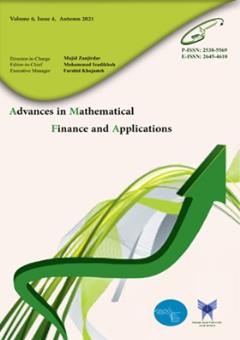-
-
-
Open Access Article
1 - Designing an Expert System for Credit Rating of Real Customers of Banks Using Fuzzy Neural Networks
Mohammadreza Abbasi Astamal Rahim RahimiCurrently, in Iran's banking system, non-repayment of facilities has become one of the biggest issues, and due to the lack of a proper system for proper allocation of facilities, they face a number of problems, including the problem of allocation of loans, the problem o MoreCurrently, in Iran's banking system, non-repayment of facilities has become one of the biggest issues, and due to the lack of a proper system for proper allocation of facilities, they face a number of problems, including the problem of allocation of loans, the problem of failure to repay loans Of the central bank, or the amount of facilities increased from the amount of reimbursement. The solution of this problem is the credit rating of the customers, which is based on a model based on the theory of fuzzy sets for validation of real customers of the Maskan bank of the East Azer-baijan in Iran in 2016. In this research a structured model was obtained for deter-mination and categorization of input variables for application in the system by factorial analysis then a expert fuzzy system was modelled that consist of six steps. In the first step a fuzzy system is designed that its inputs are financial capacity, support, reliability, repayment record and its outputs is customer credit. In the second step input and outputs are partitioned, in the third step thee partitioned inputs and outputs are converted into fuzzy numbers. The fuzzy inference is compiled in step four. In step five the defuzzifier is conducted. Finally the designed model is tested in step six. These results indicate research model efficiency compared to bank credit measuring experts that they predicate applicants performance according their judgment and intuition. Manuscript profile -
Open Access Article
2 - Explain and Prioritize Information Disclosure Factors related to Sustainable Development Accounting with Fuzzy Approach
Mohammadreza Abasi Astamal Mehdi Zeynali Rasoul Baradaran Hassanzadeh Younes NahandiThis research was conducted with the aim of explain and prioritize information disclosure factors related to sustainable development accounting with fuzzy approach" in 2019 of companies active on the Iranian Stock Exchange. Qualitative data were obtained through the stu MoreThis research was conducted with the aim of explain and prioritize information disclosure factors related to sustainable development accounting with fuzzy approach" in 2019 of companies active on the Iranian Stock Exchange. Qualitative data were obtained through the study of research and credible sources in the field of sustainable development accounting and using coding through content analysis, the initial variables of the model were identified; 61 indicators were extracted from the initial codes in 4 dimensions including: environment, social factors. Economic and governance factors were categorized. In the quantitative section, the statistical population of the study included knowledgeable and professional and academic experts in the field of ac-counting. Using the targeted sampling method, 25 experts were selected as statistical samples. In the quantitative part, using fuzzy Delphi technique in one step, the indicators were screened. In the next step, prioritization of criteria and sub-criteria was done by hierarchical analysis method with fuzzy approach; among the main criteria, environmental dimension with weight 0.405 in rank 1 The social dimension with a weight of 0.296 was ranked 2nd, the economic dimension with a weight of 0.186 was ranked 3rd and the leadership dimension with a weight of 0.113 was ranked 4th. Finally, based on the calculated final weight, the strategic approach to environmental impacts with a weight of 0.955 in the first place, management and efficiency in consumption in the second place, social development and humanity in the third place and management Waste and waste came in fourth. Manuscript profile
List of Articles Mohammadraza Abbasi Astamal
-
The rights to this website are owned by the Raimag Press Management System.
Copyright © 2021-2024


